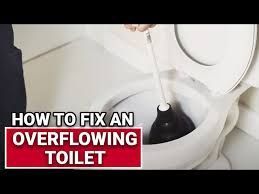The 3 Main Reasons for Gurgling Drains
Gurgling drains can be more than just a nuisance; they often signal underlying plumbing issues that require attention. If you've ever heard that distinct glugging sound emanating from your sink or bathtub, you know it's not something to ignore. These sounds typically indicate problems within your plumbing system that, if left unchecked, can escalate into more significant issues over time. Understanding the causes behind gurgling drains is the first step towards addressing them effectively and ensuring your plumbing operates smoothly. Let's explore the common reasons behind gurgling drains and how you can resolve these issues to maintain a healthy home plumbing system.
Blocked Drains
One of the primary reasons for gurgling drains is blockages within your plumbing system. When pipes become clogged with debris like hair, soap scum, food particles, or grease, water flow is restricted, causing air to become trapped and creating that familiar gurgling sound. You might notice slow drainage or standing water alongside the gurgling noise, which are telltale signs of a blockage. While minor clogs can often be resolved with a plunger or a plumbing snake, persistent or severe blockages may require professional intervention to prevent further damage to your pipes. Regular maintenance and mindful disposal of waste can help keep your drains clear and free from obstructions, ensuring smooth water flow and quiet, gurgle-free plumbing.

Ventilation Issues
Proper ventilation is crucial for your plumbing system to function correctly. When vent pipes, which allow air to enter and exit the plumbing system, are blocked or improperly installed, it disrupts the air pressure balance, leading to gurgling drains. This issue often arises when vent pipes are clogged with debris, bird nests, or other obstructions, or if they were not correctly installed during construction. Poor ventilation can cause not only gurgling sounds but also slow drainage and sewer gas odors, indicating that the air cannot flow freely through the pipes.
Common Ventilation Problems
- Blocked Vent Pipes: Debris, leaves, bird nests, or other obstructions can block vent pipes, preventing air from flowing into the plumbing system.
- Improper Installation: Incorrectly installed vent pipes can lead to inadequate ventilation, causing pressure imbalances and gurgling sounds.
- Aging or Damaged Pipes: Over time, vent pipes can deteriorate or become damaged, reducing their effectiveness in ventilating the plumbing system.
Solutions for Fixing Ventilation Issues
- Clearing Blockages: Regularly inspect and clear any debris or obstructions from vent pipes. This can often be done by climbing onto the roof and using a flashlight to check for and remove blockages. If the blockage is deep or difficult to reach, consider hiring a professional plumber to ensure the vent pipe is thoroughly cleaned.
- Proper Installation: Ensure that vent pipes are correctly installed according to local building codes. This might require consulting with a professional plumber or contractor to inspect and, if necessary, re-install the venting system to ensure it meets all requirements.
- Repairing or Replacing Damaged Pipes: If vent pipes are aging or damaged, they may need to be repaired or replaced. This can involve sealing any leaks, replacing sections of pipe, or installing new vent pipes to restore proper ventilation.
Septic System Problems
Septic system problems are another major cause of gurgling drains. When your septic system isn't functioning correctly, it can lead to air and waste buildup in the pipes, resulting in that unsettling gurgling noise. Common issues with septic systems include a full tank, clogged lines, and failing components, all of which disrupt the normal flow and treatment of wastewater.
Common Septic System Problems
- Full Tank: Over time, the septic tank fills with solid waste, which can obstruct the flow of water and cause gurgling noises in your drains.
- Clogged Lines: The pipes leading to or from the septic tank can become clogged with waste, grease, or tree roots, causing blockages that result in gurgling sounds.
- Failing Components: Components such as the septic tank baffles or the drain field can fail, leading to improper waste processing and gurgling drains.
How to Identify Septic System-Related Gurgling
- Gurgling in Multiple Drains: If you hear gurgling sounds coming from multiple drains in your home, it often indicates a problem with the septic system rather than a localized drain issue.
- Slow Drainage: Slow drainage across various fixtures suggests that your septic system might be struggling to handle the wastewater load.
- Foul Odors: Unpleasant odors near your drains or outside near the septic tank or drain field are a clear sign of septic system trouble.
- Sewage Backups: If sewage begins to back up into your home, it's a serious indication that the septic system is failing and requires immediate attention.
Steps to Take if You Suspect Septic System Issues
- Inspect the Tank: Check the septic tank to see if it is full and needs pumping. Regular maintenance, including pumping every 3-5 years, can prevent overfilling.
- Clean the Lines: Hire a professional to inspect and clean the pipes leading to and from the septic tank. This can remove any clogs and ensure proper flow.
- Check for Damage: Have a professional inspect the septic system components, such as baffles and the drain field, for any signs of damage or failure.
- Regular Maintenance: Schedule regular maintenance checks with a septic system professional to ensure all components are functioning correctly and to catch any issues early.
- Reduce Water Usage: To prevent overloading the system, reduce water usage during peak times and avoid flushing non-biodegradable items down the drains.
Conclusion
Gurgling drains are often a sign of underlying plumbing issues that should not be ignored. Whether the problem stems from blocked drains, ventilation issues, or septic system problems, identifying and addressing the root cause is essential to maintaining the health and functionality of your home's plumbing. Regular maintenance, timely inspections, and seeking professional help when needed can prevent these issues from escalating and ensure your drains remain free-flowing and quiet. By understanding the common reasons for gurgling drains and taking proactive steps to resolve them, you can keep your plumbing system in excellent condition and avoid future inconveniences and costly repairs. If you're experiencing persistent gurgling or other plumbing concerns, don't hesitate to contact a professional to ensure your home's plumbing system is in optimal working order.







